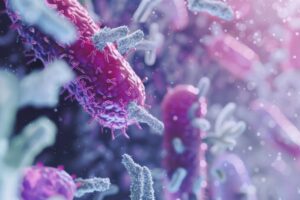diet
Video, Gastroenterology
Francesco Franceschi from Policlinico Universitario A. Gemelli IRCCS (Roma) focuses on bacterial translocation across a compromised intestinal barrier as a plausible pathway contributing to sepsis.
Video, Gastroenterology
Arthur Ouwehand, Technical Fellow at IFF Finland, discusses the components and vulnerabilities of the gut barrier and reviews how probiotics and related dietary interventions can support its structure and function.
Video
At the 13th Probiotics, Prebiotics and New Foods Congress, Silvia Turroni (University of Bologna) shares insights from the session “The Microbiome and One Health,” which explored how the microbiota bridges…
Video
For Alessio Fasano, pediatric gastroenterologist and researcher at Harvard Medical School, the message is clear: how we feed and protect our microbiome determines the clinical outcome.
Nutrition
Probiotics protect against obesity and inflammation caused by high sugar intake, supporting their use as a preventive strategy for obesity-related diabetes.
Video
Mahesh Desai, group leader of the Eco-Immunology and Microbiome team at the Luxembourg Institute of Health and adjunct associate professor at the University of Southern Denmark, discusses about his research…
Gastroenterology, Nutrition
Calcium ions affect the growth of both L. acidophilus ATCC 4356 and L. plantarum ATCC 14917, despite some differences.
Immunology, Nutrition
Dietary LPS can mimic microbial signals and drive gut immune development, with early-life being a critical window for shaping gut immunity.
Industry
The Bill & Melinda Gates Foundation accelerates research and innovation targeting the most neglected areas of female health.
Oncology
Plant compounds and gut microbiota activity influence how cancer drugs work and should be considered in treatment.











